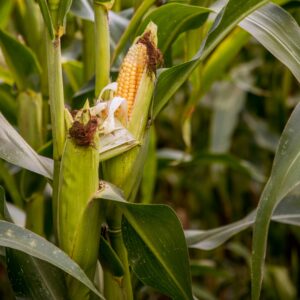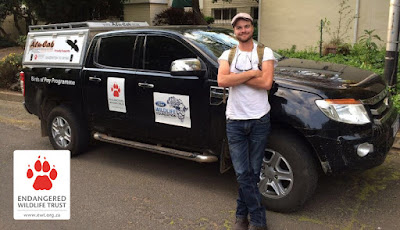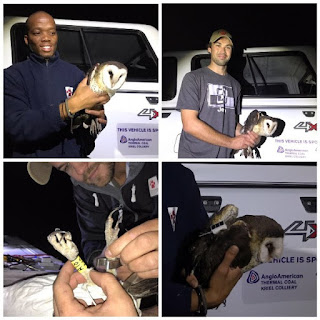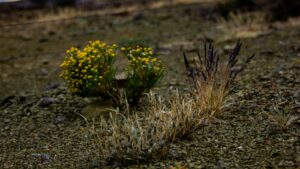

A conservation superhero has turned crime fighter, as the special owls he saves have led the way to a nest of stolen vehicles.
Early on Tuesday morning, 5 December, the manager of the Endangered Wildlife Trust (EWT) Birds of Prey Programme, Dr Gareth Tate saw that, as usual, his Ford Ranger stood safely in the driveway. Moments later, when he looked again, there was only empty space where his Ranger once stood. A trusted companion in the field for many years, the vehicle had been sponsored by the Ford Wildlife Foundation, and Gareth’s work would be crippled without it. He immediately called the police and the vehicle tracking company, Netstar, and notified the security company that guards the street.
CCTV footage showed a car pulling up next to the EWT vehicle, and less than ten minutes later the Ranger was driven off. To follow the strong signal from the two tracking devices in the vehicle, a team was sent to intercept the stolen car, but the devices were soon found discarded from the vehicle. It was now officially off the grid.
Or was it? As it happened, there was a solar powered GPS/GSM tracking device in the vehicle, which was intended to be attached to a threatened African Grass-owl as part of an EWT research project on the movement ecology of the species on the highveld coal belt. The team had planned to head out the evening before to deploy it on one of these mysterious birds, but this trip had been cancelled due to heavy rain.
The owl tracking device uses cellular networks to download and send GPS locations or fixes at set intervals. Gareth immediately uploaded new settings to the device that was due to come online at 14:00 that afternoon. The new settings would make the device come online and send a location every 10 minutes, as opposed to only every 20 hours.

At 14:00, Gareth logged in to see if the device had powered up, but to his disappointment, it had not come back online and it was feared that this tracking device too had been destroyed.
After checking on the device on an hourly basis for the next few days with no success, it seemed as if all hope was lost. However, a final attempt to check up on the logger on Sunday 10 December proved successful, as it was not only online but was giving strong GPS fixes. The police were contacted, as was Netstar, and both mobilised their teams. Gareth also contacted Mark Notelvitz, the director of CORTAC tactical security services in Johannesburg, whom he also informed about the owl tracking unit coming online and Mark immediately got his teams into the area, despite the EWT not being their client.
With the help of SAPS, CORTAC and Netstar searched a number of premises in close proximity to the last GPS location, but were unable to locate either the vehicle or tracker. On Monday morning (11 December 2017), Gareth again logged in and noticed the tracker had come online again. Due to poor cellular reception and waning battery life, there was some error in the accuracy of each GPS fix, which usually varies from 0-100m, making the exact location of the device difficult to distinguish. But after conducting in-depth analysis on the data, based on similar work done when trying to locate vulture nests from GPS-tagged individuals, Gareth was able to determine a more accurate location of the stolen device. He again contacted the SAPS, Netstar, and CORTAC with the updated address and coordinates for the device. This led to the discovery of the stolen EWT Ford Ranger along with two other stolen vehicles. A number of individuals were also apprehended and a large amount of criminal activity was uncovered in the premises. The EWT’s little owl tracker not only saves owls’ lives but was instrumental in bringing down a criminal syndicate and recovering stolen vehicles.
This remarkable story demonstrates how teamwork, relentless perseverance and conservation in action not only saves wildlife but saves the day!
Special thanks must go to all those involved, including SAPS, CORTAC, Netstar, and Ford Wildlife Foundation, for helping to return this vehicle to the EWT, keeping our birds of prey in the sky and our Ranger on the road! – Endangered Wildlife Fund press release.
Read about the EWT and owls in the “Birds and farming” chapter.





